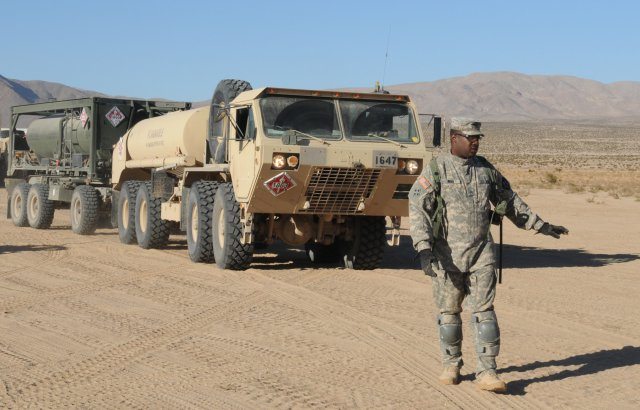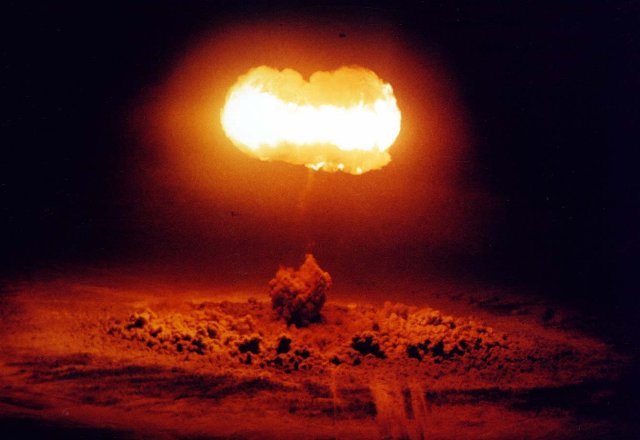Army commands can start thinking now about submitting study proposals to the Army Study Program Management Office for consideration this summer.
Meghan Mariman, director of the Army Study Program Management Office, known as ASPMO, which is part of G-8 at the Pentagon, said that each year, her office pays for about 30 studies at the request of Headquarters, Department of the Army agencies and Army-level commands.
A study, she said, is a research project or an effort to make a project more efficient. The ASPMO is funding studies this year into traumatic brain injury monitoring, risk assessment, leadership development, and cyberspace operations, for instance.
“We’re looking to make smarter decisions, to either make a process more efficient or more effective,” Mariman said.
Funded in fiscal year 2013 by ASPMO are studies on cyberspace defensive operations, the effectiveness of the Selected Reserve Incentive Program in maintaining the Reserve force, the use of locally-sourced materials for construction of facilities in theater, and something called “Neurocognitive Temporal Training and Marksmanship Performance.”
“Using a virtual environment, Soldiers can become better sharpshooters,” Mariman said of the study on neurocognitive training. “And they can use a virtual environment, which saves money; the Office of the Surgeon General has some brilliant work going on.”
In fiscal year 2013, the ASPMO funded nearly 30 studies at about $335,000 each for 15 different agencies, including the Office of the Surgeon General; the Army Materiel Command; the Office of the Assistant Secretary of the Army for Acquisition, Logistics and Technology; U.S. Army Space and Missile Defense Command; and the Army’s G-3/5/7.
The ASPMO doesn’t do any research for the Army on its own. Instead, it takes in requests for studies from commands and HQDA agencies, and finds a suitable research agency to perform those studies. That could include internal Army agencies that do analysis, such as the Center for Army Analysis at Fort Belvoir, Va. The ASPMO also works with a federally funded research and development center called the RAND Arroyo Center, and with commercial contractors that can perform studies for the Army.
“We manage the program, we provide the resources, and then work with the sponsoring command to help them identify a performer,” Mariman said. “If we have the expertise in-house, of course, we try to keep it in house. We’re trying to do the analysis in the most cost-effective way.”
The ASPMO also manages the relationship between the analysis agency that does a study and the command that wants the study done. She said the studies that yield the best results are those where there was a close relationship between the command that sponsored the study and the agency that performed it.
“I can’t make sure they have regular in-progress reviews,” Mariman said. “But what I can do is encourage regular meetings, and to make sure that the analysis is going in the right direction. That’s where we find the sponsors are most pleased with the results — when they are involved in the process along the way.”
Mariman said most of the studies take about 12 months to complete, and are generally focused on the most current and relevant issues affecting the Army. In fact, she said, the ASPMO compiles a list of topics that are most relevant to the Army and uses that list, in part, to determine which studies will be funded.
“We’re trying to look at near-term issues,” she said.
The ASPMO puts out yearly guidance on topics that are critical to the Army so that agencies that would like to have ASPMO pay for a study can focus their request on issues important and timely for the Army, Mariman said.
“There’s been a big push to make things more efficient in terms of energy and water security,” she said. “So those are two areas we work really closely with the commands that focus on energy conservation.”
Two studies currently underway for the Army in regard to water usage include one that looks at how to reuse waste water, and another that looks at commercial off-the-shelf water quality analysis sets. Both studies are underway now for the Office of the Assistant Secretary of the Army for Installations, Energy and Environment.
At forward bases, Mariman said, for each gallon of fresh water brought into a location, an equivalent amount of waste water must be brought out or dealt with on site.
“So we’re looking at ways to purify the water and not make an environmental impact,” she said.
In the spring, around mid-April, the ASPMO’s “Study Program Coordination Committee” releases guidance for what kinds of topics are most important to the Army. Shortly after, they issue a call for studies — inviting agencies to submit proposals for consideration by the Senior Analyst Advisory Board. By the fall, the SPCC meets again to approve proposals for study in the upcoming fiscal year.
ARCHIVING RESEARCH FOR THE FUTURE
Studies funded by ASPMO don’t end up in a black hole after the research is done. Instead, the synopsis for each study requested, in progress or completed is posted online within an ASPMO database that allows other agencies access to the research, Mariman said.
“If a command is looking to see if a project has been performed in the past, they can do some initial research in our database to see what analysis has been done on a certain platform or issue,” she said, adding that there’s nearly 5,000 studies documented in that database.
While the actual studies are not posted online, the points of contact for the research are there, as well as a synopsis of the work done. That way, interested Army parties can get access to research the service already paid for and avoid replicating the work themselves.
“It helps to take advantage of lessons learned,” Mariman said. “Nobody wants to start from ground zero when they are working on an analysis project. Almost all the work we do is unclassified, so one thing that makes the work we do powerful is sharing the work we do with other commands. We don’t want to duplicate efforts. So we work really closely with all the internal Army analysis agencies to make sure we don’t have redundant efforts going on.”











